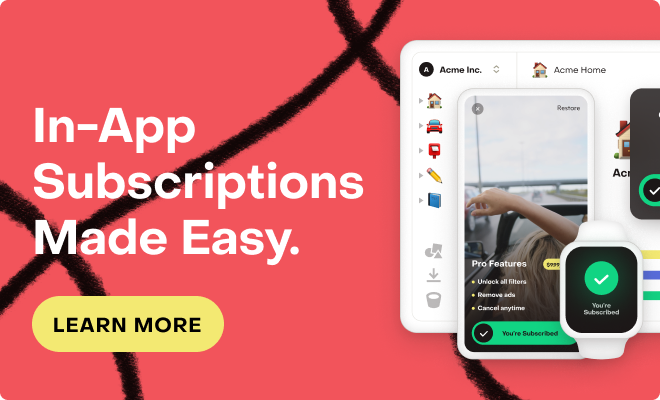Hello fellow developers,
If you're like me, you've embraced RevenueCat as a silver bullet for your in-app purchase needs. The proposition is compelling: let RevenueCat handle the complex, ever-changing landscape of app monetization so you can focus on what you do best — building an amazing app. In theory, this should make our lives easier. However, a pattern has emerged that challenges this notion: the API keeps changing, and it's forcing us to constantly revisit and update our integrations.
Now, I'm all for improvements and new features. Progress is essential. But let's not lose sight of why we signed up for RevenueCat in the first place. The whole appeal of a wrapper like this is to abstract away complexity, not to introduce a new layer of maintenance.
What's the Point of a Wrapper If It Unwraps Itself?
The idea behind using a wrapper around Google Play Billing Library (or Apple's equivalent) is that we should be shielded from direct changes to these libraries. If Google or Apple changes something, RevenueCat should absorb that complexity behind the scenes, without requiring us to rewrite our implementation.
Yet, every few months, we are faced with new SDK releases that necessitate updates on our end. These aren't always simple 'drop-in-and-forget' updates; sometimes they require a fair bit of re-engineering. So I have to ask: isn't this against the philosophy of what a wrapper is supposed to be?
The Cost of Progress
I appreciate that RevenueCat is evolving. It's one of the reasons I chose it. But let's also consider the cost: Every hour spent updating RevenueCat integration is an hour not spent on improving the app or adding new features. It's counterproductive when you adopt a solution to save time and then end up investing more time to keep up with it.
A Call to Action
Developers at RevenueCat, we love what you're doing. We just ask that you be mindful of the ripple effect your changes have. Can you commit to maintaining a more stable API while still progressing and adding new features?
Fellow developers, what are your thoughts? Have you experienced similar issues? How can we collaborate to make this ecosystem better for everyone?
Looking forward to hearing your thoughts.
Best,
Antonio

